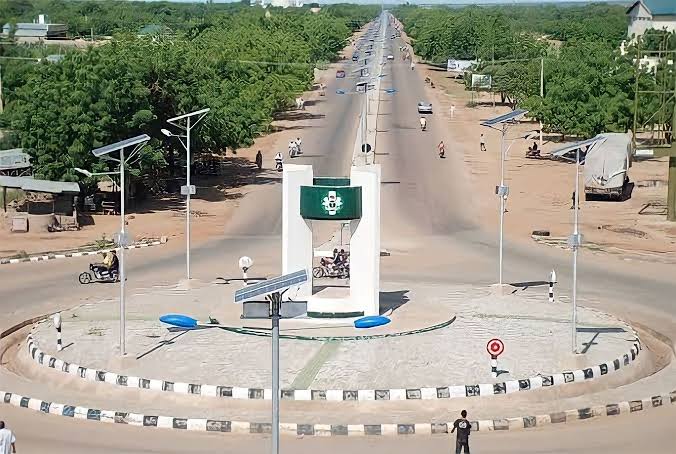Complete List Of Local Government Areas In Yobe State And Their Headquarters

Yobe State, located in Northeast Nigeria, was created in 1991 from Borno State. The state is known for its semi-arid climate, agriculture, and livestock farming. It shares an international border with Niger Republic, making it a key location for cross-border trade.
Despite challenges such as desert encroachment, Yobe State remains a significant agricultural producer, especially for millet, sorghum, and livestock. The state is also home to historical sites, including the ancient Ngazargamu ruins, which were once the capital of the Kanem-Bornu Empire.
Yobe State has 17 Local Government Areas (LGAs), each playing a role in the state's governance and economy. Below is the complete list of LGAs in Yobe State, along with their headquarters and notable features.

Complete List of Local Government Areas in Yobe State and Their Headquarters
1. Bade Local Government Area
- Headquarters: Gashua
- Known for: Fishing and irrigation farming, with the Hadejia-Nguru wetlands.
2. Bursari Local Government Area
- Headquarters: Dapchi
- Known for: Farming and pastoral communities.
3. Damaturu Local Government Area
- Headquarters: Damaturu
- Known for: State capital and administrative center.
4. Fika Local Government Area
- Headquarters: Fika
- Known for: Home to the Fika Emirate, one of the oldest in Yobe State.
5. Fune Local Government Area
- Headquarters: Damagum
- Known for: Agriculture and animal husbandry.
6. Geidam Local Government Area
- Headquarters: Geidam
- Known for: Border trade with Niger Republic.
7. Gujba Local Government Area
- Headquarters: Buni Yadi
- Known for: Farming and forestry.
8. Gulani Local Government Area
- Headquarters: Bara
- Known for: Agriculture and forest reserves.
9. Jakusko Local Government Area
- Headquarters: Jakusko
- Known for: Fishing and farming along the Komadugu-Yobe River.
10. Karasuwa Local Government Area
- Headquarters: Karasuwa
- Known for: Irrigation farming and date palm cultivation.
11. Machina Local Government Area
- Headquarters: Machina
- Known for: One of the oldest desert communities, with a history of camel trade.
12. Nangere Local Government Area
- Headquarters: Sabon Gari
- Known for: Farming and local markets.
13. Nguru Local Government Area
- Headquarters: Nguru
- Known for: Railway connections and trade hub.
14. Potiskum Local Government Area
- Headquarters: Potiskum
- Known for: Largest cattle market in Nigeria.
15. Tarmuwa Local Government Area
- Headquarters: Babbangida
- Known for: Desert farming and pastoralism.
16. Yunusari Local Government Area
- Headquarters: Kanamma
- Known for: Border trade and desert economy.
17. Yusufari Local Government Area
- Headquarters: Yusufari
- Known for: Sand dunes and desert landscapes.
Frequently Asked Questions (FAQs)
1. What is the capital of Yobe State?
The capital of Yobe State is Damaturu, located in Damaturu Local Government Area.
2. How many Local Government Areas are in Yobe State?
Yobe State has 17 Local Government Areas (LGAs).
3. What is Yobe State known for?
Yobe State is famous for:
- Livestock farming (cattle, goats, and sheep).
- Desert landscapes and sand dunes.
- Trade with Niger Republic.
- Agriculture, including millet, sorghum, and date palm.
4. Which LGA is the most populated in Yobe State?
Potiskum LGA is the most populated due to its large cattle market and commercial activities.
5. Which LGA is best known for border trade in Yobe State?
Geidam and Yunusari LGAs are key border trade points between Nigeria and Niger Republic.
6. What are the major economic activities in Yobe State?
The economy of Yobe State is driven by:
- Livestock farming and trade.
- Agriculture, especially millet, sorghum, and wheat.
- Fishing, particularly in Bade and Jakusko LGAs.
- Desert farming and irrigation projects.
7. Which LGA has the largest cattle market in Yobe State?
Potiskum LGA has Nigeria’s largest cattle market, attracting traders from across West Africa.
Conclusion
Yobe State is an agriculturally rich and trade-oriented state with 17 Local Government Areas, each contributing to livestock farming, border trade, and desert agriculture. Despite its arid climate, Yobe plays a key role in Nigeria’s economy, particularly in the livestock and cereal farming sectors.






